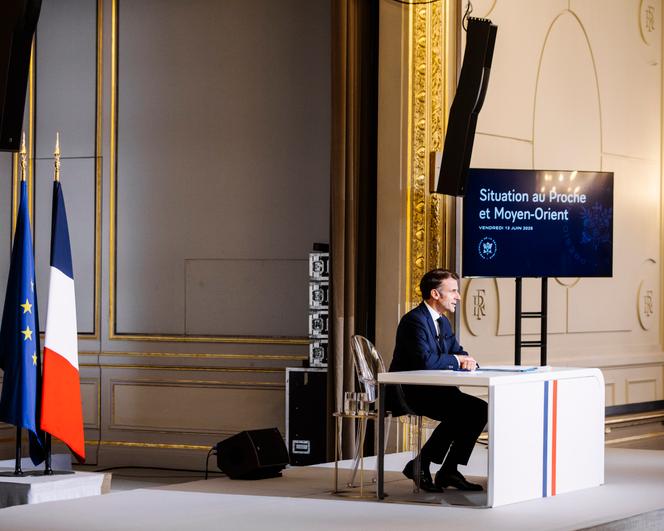


Calling for restraint and diplomacy, without condemning Israel or disavowing its strikes: France, the United Kingdom and Germany reacted on Friday, June 13, in a somewhat unexpected, even acrobatic manner, to the vast offensive launched by Israel against Iran.
One after another, the three European states – which, in 2015, were signatories with Iran, the European Union, the United States, Russia and China, of the agreement intended to limit the expansion of Iran's nuclear program, buried by Donald Trump three years later – supported Israel's "right to defend itself" in the face of what they see as an existential threat: The prospect of the Teheran regime possessing nuclear weapons. Until now, Paris, London and Berlin had tried, unsuccessfully, to talk Benjamin Netanyahu out of carrying out his threats in order to favor the diplomatic option.
No hard feelings. On Friday, the French, British and German leaders each called the Israeli prime minister to express their solidarity, despite the clear deterioration, at least for the first two, of their relations with Netanyahu because of the war in Gaza. "Israel has the right to defend its existence and the safety and security of its citizens. The aim must be to ensure that Iran does not develop nuclear weapons," said German Chancellor Friedrich Merz, speaking promptly. The British leader Keir Starmer emphasized in the afternoon Israel's "right to self-defense" and the "UK's grave concerns" regarding Iran's nuclear program.
You have 75.74% of this article left to read. The rest is for subscribers only.
